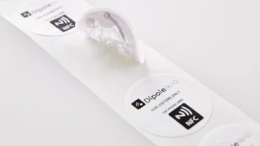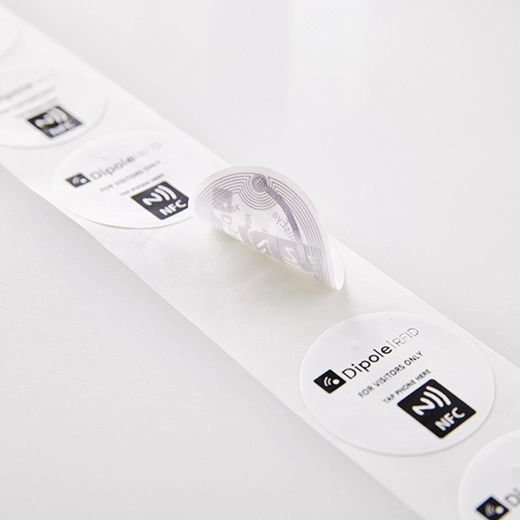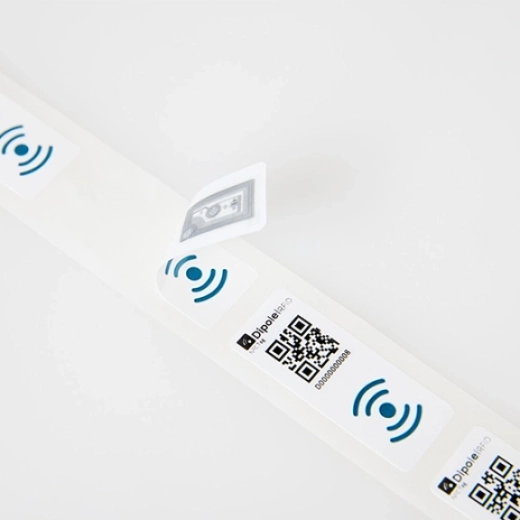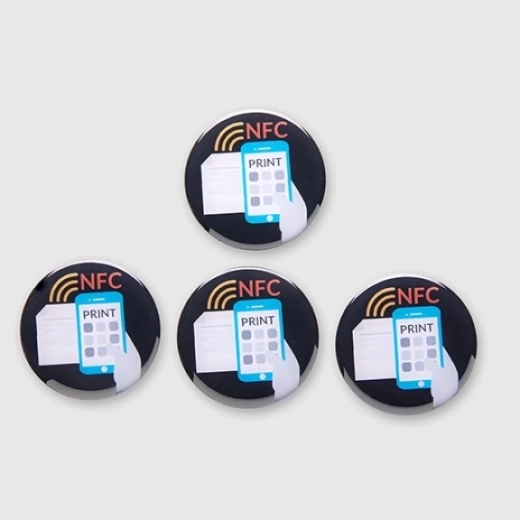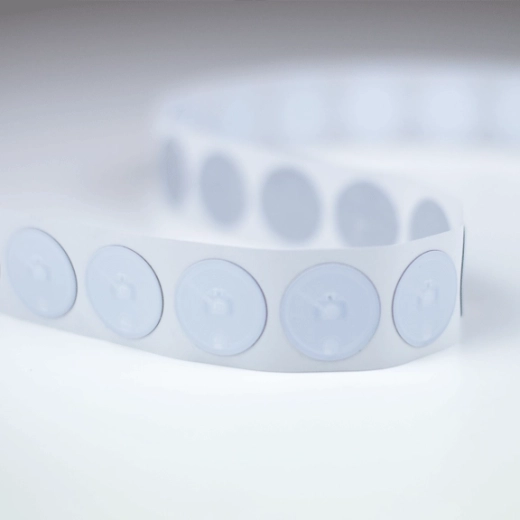NFC technology against counterfeit products
In an increasingly interconnected world, product counterfeiting has become a growing concern for businesses and consumers, especially for luxury sectors or brands.
According to data from North Carolina State University in 2021, counterfeiting has gone from being a $30 billion business problem in the 1980s to now exceeding $600 billion in trade.
These acts are economically damaging to business and have an impact on brand image, as customers may feel cheated that what they are buying is not as exclusive as it seems. But not only that, counterfeiting threatens the health and safety of consumers, especially when it comes to food or high-value products such as pharmaceuticals, jewellery or beverages.
In this blog we show you how Dipole' s NFC technology can prevent product counterfeiting and what solutions it offers.
NFC (Near Field Communication) technology is a wireless connectivity technology based on Radio Frequency Identification (RFID) that enables contactless communication between an NFC reader chip and an NFC tag.
If you want to know more about what NFC technology is and how it works visit our blog: www.dipolerfid.com/rfid-blog/whats-is-nfc
How can NFC technology prevent product counterfeiting?
NFC technology is a solution for authenticating products, verifying their origin and ensuring their integrity, increasing consumer confidence.
How is this achieved? By attaching an NFC tag to the items we want to identify.
NFC tags are a small, easily integrated device that stores previously configured data and is capable of transmitting it to users through an NFC reader, such as a mobile phone. In this way, they can easily identify a product or object that can be detected wirelessly, which helps to guarantee product authentication.
Here are some examples:
Luxury Brands
NFC tags can ensure product authenticity and brand protection, helping luxury brands fight counterfeiting. The NFC tag can be integrated into their items, such as bags, jackets or jewellery boxes, during production.
Brand owners and consumers can access the content of the tag by touching it with their NFC-enabled smartphone and receive confirmation that their product is authentic.
Healthcare and wellness
In this segment, product add-ons and accessories can be easily manipulated. Consumers may buy low-cost alternatives that are not manufactured by the original brand, which can lead to product malfunction and affect sales.
Example: The NFC reader integrated in the main unit recognises the label on the rotating head to authenticate the product.
Pharmaceutical industry
Billions of counterfeit medicines are put on the market, harming the health of thousands of people every year. Therefore, it is essential to implement this solution in this sector to increase patient safety. An NFC tag can be implemented on the packaging of medical supplies such as medicines, vaccines or samples.
Thanks to the tag's tamper detection function, pharmaceutical brands can ensure product integrity and thus patient safety.
Before taking their medication, patients can use their smartphone to touch the medicine box containing the NFC tag and receive confirmation that the medicine is safe.
Wine and spirits industry
The wine and spirits industry can take advantage of NFC technology to guarantee product integrity and assure consumers of its authenticity.
For example, by implementing the NFC tag on the bottle cap, the manufacturer can programme a tamper detection function, meaning that the consumer can read this tag to detect if and when someone removed the cap from the bottle.
In this way we also involve the customers and convey security and concern about what they buy from our brand.
Sports industry
Sports brands have turned to digital technologies to drive sales and offer their customers an innovative shopping experience. However, the availability of counterfeit sportswear online is growing.
Counterfeiters can easily manufacture sportswear and add a fake sports label just before shipping the goods to consumers.
Low-quality, counterfeit sports equipment can have significant consequences on the user experience, and even lead to injuries if the equipment does not meet certain manufacturing standards related to user safety.
Embedding NFC tags in specific equipment can allow users to authenticate their product, simply by using their smartphone to touch the tag.
As you have seen, the solutions offered by Dipole's NFC technology can become an indispensable ally in the fight against product counterfeiting. By adopting intelligent strategies, companies can build a shield that protects the authenticity of their products and gives consumers the confidence they deserve when shopping.
If you want to start implementing this technology in your products or services, Dipole RFID can help you. We have more than 20 years of experience in smart identification, industry 4.0 and digitalisation.
Related products
Contact Form
We can help you?
Find the RFID product or solution that meets your business needs.
Ask us to help you find the right decision.

